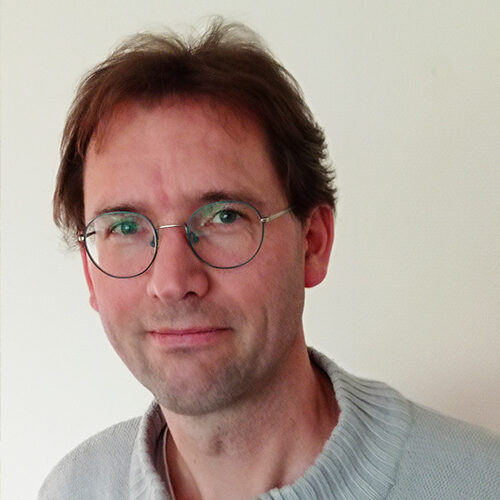Profile of the supervisor
Prof. dr. Rampal Etienne was first fascinated by the physical world around us, and asking philosophical questions. But he was also concerned with our treatment of the world around us. Armed with three MSc degrees (physics, philosophy of science and environmental science) and a year of experience as a lecturer in environmental modelling he started a PhD project at Wageningen University (with Hans Heesterbeek and Johan Grasman) on metapopalation management which he studied from a theoretical perspective, building mostly stochastic models of interconnected populations. Stochastic models allowed him to construct a statistically sound inference framework; he was attracted by likelihood-based methods such as maximum likelihood and Bayesian approaches, because they find solid foundations in probability theory, despite their shortcomings. After the PhD in 2002 he moved from metapopulations into metacommunities on postdoc positions at Wageningen University and the University of Groningen (with Han Olff), and became interested in speciation, macroevolution and diversification. He extensively studied the neutral theory of biodiversity. In 2007 he obtained a VIDI grant that allowed him to start a group as assistant professor at the University of Groningen in Theoretical and Evolutionary Community Ecology, dealing with understanding community diversity from a theoretical and evolutionary perspective. He was promoted to associate professor and full professor in 2012 and 2017 respectively. Etienne became fascinated by molecular phylogenies and how much (or how little) they inform us about the processes that shaped them over millions of years. In particular he studied the diversity dependence of diversification and the protracted nature of speciation. In 2014 he was awarded a VICI grant that provided an opportunity to start experimental and field studies, with spider mites, microbes and microsnails. Around the same time he moved into Island Biogeography and together with Luis Valente (Naturalis Biodiversity Center) and Ally Phillimore (University of Edinburgh) established the modelling framework DAISIE (Dynamical Assembly of Island biota through Speciation Immigration and Extinction) which allowed them to infer the rates of island community assembly from molecular phylogenies and knowledge of endemicity status. He also embraced the field of trait diversification and developed, together with Leonel Herrera-Alsina (University of Aberdeen), the modelling framework secsse (several examined and concealed state dependent speciation and extinction) that allows inference of the influence of traits on diversification. That marked also the beginning of a research line on trait evolution. In 2020 Etienne was awarded the Descartes-Huygens prize, particularly for his longstanding and successful collaboration with Bart Haegman (CNRS, France).
Expertise
diversification, experimental evolution, trait evolution, island biogeography, origin of life, community assembly, phylogenetics
Profile of the research group
A major challenge in ecology and evolution is the need for a better theoretical framework for understanding the origin of species assemblages (ecological communities), why some are species-rich and others species-poor, and why some species are present or dominant whereas others are not.
Community assembly theory is largely based on static and/or deterministic models. However, ecological dynamics (e.g. ecological drift, competition, immigration), or evolutionary dynamics (e.g. genetic drift, natural selection, speciation) generate continual changes in the constituents of communities and the sources from which they are assembled. The dynamical models that do exist do not take the community perspective or do not readily allow inferences from data. Moreover, there is often a mismatch between models and data. We attempt to solve these problems simultaneously by developing a fully stochastic, dynamical and data-friendly theory of community assembly, and testing and informing this theory with model-oriented experiments and field studies of both macro-organisms and micro-organisms. The theory contains models of speciation, extinction, immigration, trait evolution and demographic change which vary in spatial, phylogenetic and biotic complexity, and is designed for confrontation with data, for instance by providing each model’s likelihood given the data.
